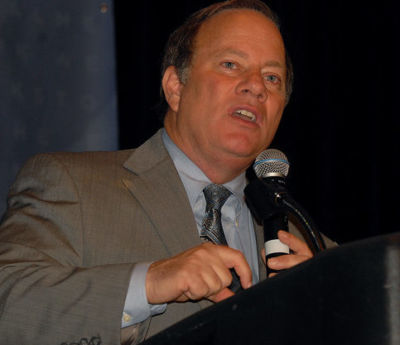


Michigan auto insurance rates are a favorite topic for journalists and legislators alike. No-fault reform bills have been put forward and defeated for the last several years, often because they were seen as one-sided. Now Detroit Mayor Mike Duggan, a Democrat, has teamed up with Republican legislators to propose a new no-fault reform bill. But will it do any better than its predecessors?
Photo credit: Barbara Barefield — some rights reserved under Creative Commons Public License
Politicians and the media won't let the public forget how expensive Michigan auto insurance is. Premiums here can be twice as much as coverage in other states. That high price tag comes with unlimited coverage for medical expenses, treatments, and services, as well as 3 years of lost wages and replacement services. Michigan is the only state to have that level of coverage. Other no-fault states put caps on the amount an insurance company will pay after a catastrophic auto accident.
Republicans in Lansing have been trying to put those same limits on Michigan auto insurance for years. Most legislative sessions see at least one no-fault reform bill including caps on benefit payouts and other restrictions on coverage.
In 2016, Mike Duggan, the Democrat mayor of Detroit, joined the bandwagon with his "D-Insurance" plan. This plan would have allowed Michigan residents in certain areas (primarily Detroit) to opt into a severely reduced insurance plan in the hopes that the sacrifice would result in lower premiums. Despite a push in the lame-duck session, Duggan's no-fault reform fared no better than its Republican-led predecessors.
On September 26, 2017, Duggan took center stage again, announcing a new "bipartisan" no-fault reform bill. He said:
It’s clear that no-fault is collapsing and not doing what it was designed to do, and that’s costing Michigan drivers dearly. . . . People are paying too much, forcing them to cut back on other necessities so they can afford to drive. It leaves too many people driving uninsured or unable to drive at all because their insurance costs more than their car payment.
The plan incorporated many of the changes Duggan had wanted to see in D-Insurance with other elements from previous no-fault reform efforts. However, there were also some changes that could appeal to consumer advocates and smooth the way for passage. The plan amends the Michigan No-Fault Act by:
The plan doesn't include everything consumer advocates were pushing for, though. It does not restrict an insurer's ability to deny claims and force litigation. Nor does it include any protection for medical providers charging fees within the proposed structure, ensuring prompt payment. Many advocates are also likely to disapprove of the way insurers are permitted to set their rates and the fact that the Fraud Authority includes 12 insurer representatives, 4 people connected to law enforcement, and only 2 members of the general public. That could mean that the new no-fault reform plan will face the same opposition previous versions have.
It also doesn't appear to have bipartisan support in the legislature the way the news articles claim. House Bill 5013 had a single sponsor, Republican Lana Theis, when introduced. It was publicly supported by Michigan House Speaker Tom Leonard (R-DeWitt). It does not appear that any Democratic legislator has voiced support for the bill to date.
The future of Duggan's new no-fault reform bill remains uncertain. But what is clear is that auto insurance law continues to be a top priority for law-makers and a popular topic for journalists.
At Sachs Waldman, we have extensive experience helping injured motorists after an auto accident. We can help you recover auto insurance benefits and third-party negligence damages. Contact our Detroit personal injury law office at 1-800-638-6722.
© 2025 Michigan Injury Attorneys
View Our Disclaimer | Privacy Policy
Detroit Personal Injury & Car Accident Attorneys